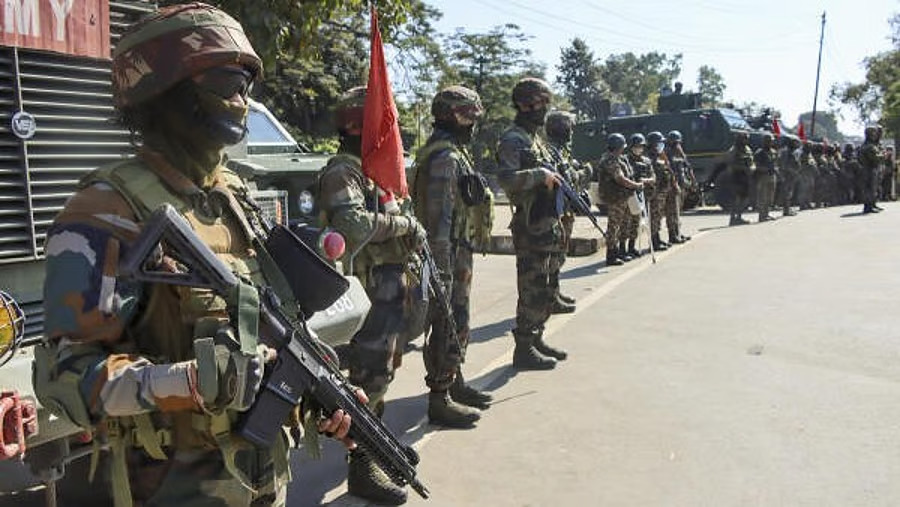In the restive hill district of Churachandpur in Manipur, normal life came to a grinding halt as a powerful tribal organization enforced a total shutdown, disrupting movement, halting businesses, closing schools, and drawing widespread attention to the region’s unresolved tensions. The bandh was organized in protest against what the tribal leaders described as continuous political neglect, administrative injustice, and marginalization of hill communities.
The call for the shutdown, issued by the Indigenous Tribal Leaders’ Forum (ITLF), was part of a larger demand for the protection of tribal rights, including autonomy in governance, equitable distribution of resources, and stronger political representation. As the sun rose over Churachandpur, usually bustling marketplaces stood deserted, commercial establishments pulled down their shutters, and roads that typically echo with the noise of daily life fell eerily silent.
Public transport was suspended as drivers and operators adhered to the call, and even private vehicles stayed off the streets for fear of backlash. Schools and educational institutions were closed, and government offices saw thin attendance. Local sources reported that checkpoints were put up in strategic areas, manned by volunteers ensuring compliance with the shutdown. There were no reports of violence, but the atmosphere remained tense and heavily monitored by police and paramilitary forces.
The ITLF, in its statement, said the bandh was not just a reaction to a single issue, but a culmination of years of frustration. The forum accused the state government of discrimination, citing delays in implementing development schemes in tribal areas, failure to recognize traditional tribal governance systems, and ignoring longstanding land disputes and demands for greater local autonomy.
The bandh follows a series of confrontations and protests that have rocked Manipur over the past year, particularly as ethnic tensions between different communities have escalated. The hills versus valley divide — a longstanding socio-political fault line — remains at the heart of the unrest. While the valley is dominated by Meitei communities, the hills are home to various tribal groups including Kukis, Nagas, and other indigenous populations who have repeatedly voiced concerns about being sidelined in decision-making processes.
The current shutdown, though peaceful, is seen by observers as a strong statement of defiance. Local leaders have reiterated that if the government continues to ignore tribal voices, more widespread and sustained agitations could follow. “This is a symbolic shutdown today, but if our issues remain unaddressed, it will be just the beginning of a larger movement,” a tribal spokesperson warned.
Civil society organizations and student unions in Churachandpur extended their support to the shutdown, underscoring the depth of discontent among the populace. Many residents expressed solidarity, saying that though the disruption caused hardship, the cause was worth standing up for. “It’s not just about today. It’s about generations of neglect,” said a local teacher whose school was closed for the day.
The Manipur state government has so far maintained silence, apart from deploying additional security personnel to sensitive zones to prevent any flare-ups. However, political analysts suggest that continued indifference may only harden the position of tribal leaders and deepen the trust deficit between communities and the state machinery.
Social media channels from the region were flooded with images of empty roads, closed schools, and posters bearing slogans such as “Equality for Tribals” and “Justice Cannot Wait.” These visuals painted a vivid picture of a district united in protest, demanding recognition, respect, and reform.
The impact of the shutdown was not just physical but deeply symbolic. It served as a reminder of the unfinished work of inclusive governance in a state that remains ethnically diverse, culturally rich, but politically fractured. The bandh was not just a rejection of policy but a desperate plea for dignity — a community’s collective cry to be seen, heard, and valued.
As night fell over Churachandpur, the streets remained quiet but the message had been sent loud and clear. Whether the state listens and responds meaningfully to this message will determine not only the future of governance in Manipur but also the fragile peace in a region long struggling to reconcile its diversity with unity.
Sponsored
FACTS Transcripts
Apply for a University document anywhere
https://www.factstranscript.com
Quick Transcripts for popular Universities, check your University name now and get started. We help you to get your transcript application online which is accepted for use of IRCC.
No DD, NO Paperwork. 100% Authentic, Reliable.
FACTS Transcripts Charges · Reviews · Assam Universities · Home · Know your University










